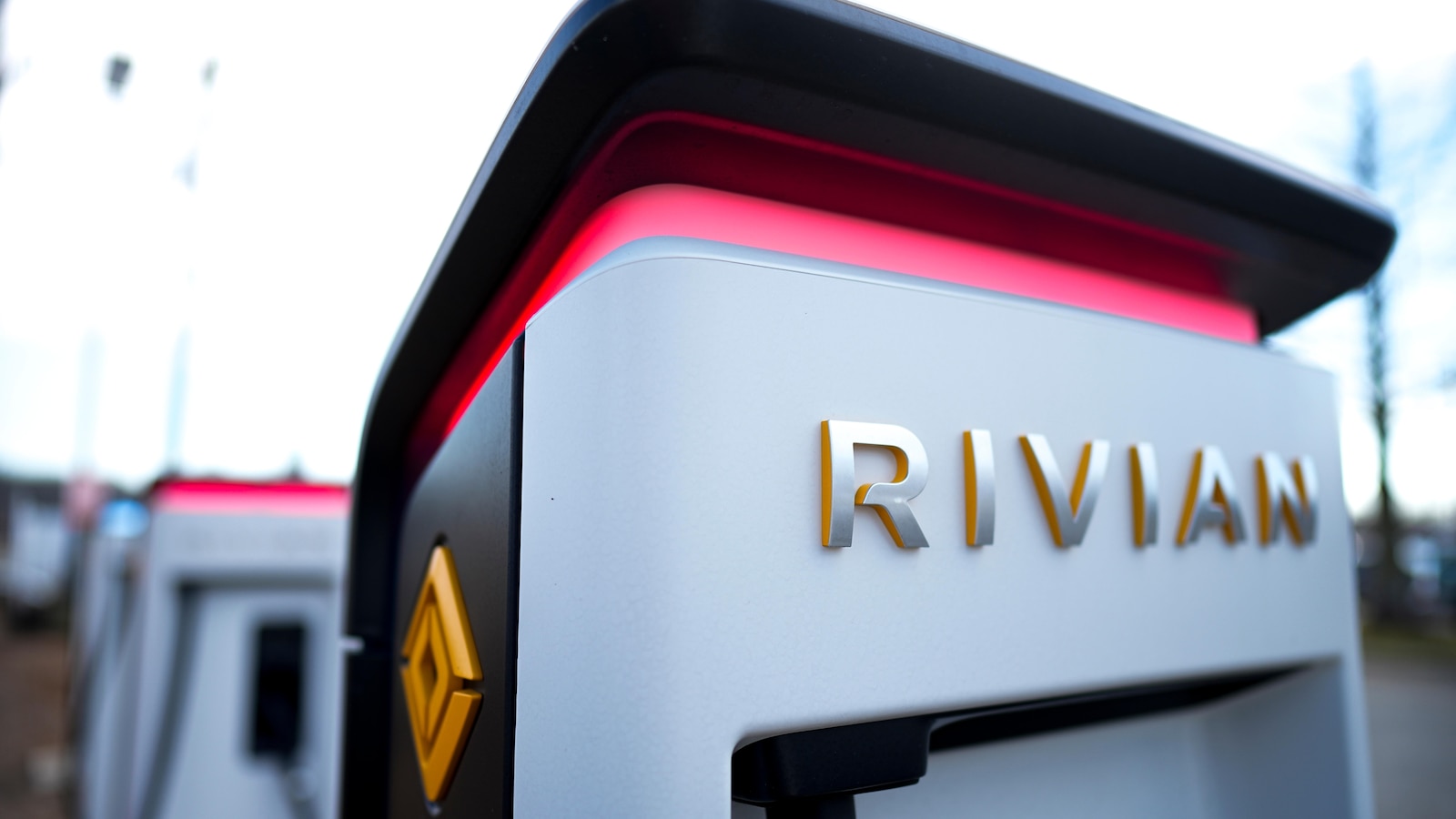
Shares of Rivian soared 40% before markets opened Wednesday after Volkswagen vowed to invest $1 billion in the struggling electric vehicle maker immediately, and a potential total of up to $5 billion as part of a software development agreement.
Rivian’s market value soared close to $86 billion shortly after it went public in 2021, but it is in dire need of funding to develop its next vehicle and it is bleeding money. Volkswagen needs help with its software, where Rivian is seen as a very strong player.
Volkswagen will initially invest $1 billion in Rivian Automotive Inc., with plans to invest up to an additional $4 billion. That $4 billion includes an additional investment of up to $2 billion in Rivian’s common stock that’s expected to include two installments of $1 billion each in 2025 and 2026. An investment of $2 billion related to the joint venture is expected to be split between a payment at the inception of the joint venture and a loan available in 2026.
“Not only is this partnership expected to bring our software and associated zonal architecture to an even broader market through Volkswagen Group’s global reach, but this partnership also is expected to help secure our capital needs for substantial growth,” Rivian founder and CEO RJ Scaringe said in a prepared statement.
Both companies expect to lower their costs per vehicle produced while ramping up scale.
Rivian plans to license existing intellectual property rights to the joint venture, allowing Volkswagen Group to use Rivian’s existing electrical architecture and software platform.
“Our customers benefit from the targeted partnership with Rivian to create a leading technology architecture,” Volkswagen Group CEO Oliver Blume said. “Through our cooperation, we will bring the best solutions to our vehicles faster and at lower cost.”
Vehicles using the technology produced by the joint venture, first announced late Tuesday, are expected to be launched in the second half of the decade.
Rivian, based in Irvine, California, made a splash during its stock market debut in 2021 as company shares spiked 53% and its market value neared $86 billion, greater than that of Ford and just below General Motors.
Investors were searching for the next up-and-comer in the electric vehicle market, and Rivian already had some big-name backers.
Rivian landed a contract with Amazon.com to produce 100,000 electric delivery vans, and a half-billion dollars from Ford.
But Rivian has yet to turn a profit, and its stock has fallen from its lofty highs of a few years ago. To conserve cash, Rivian paused construction on a $5 billion electric truck plant in Georgia. Rivian said in March that there was no timetable for restarting work on the plant.
The joint venture with Volkswagen could be the jolt that’s needed and Wedbush’s Dan Ives called the agreement a game changer for Rivian.
“Rivian will leverage this opportunity by utilizing this robust capital roadmap to support future growth while vertically integrating its software platform and electrical architecture while achieving further cost savings and deliver improved vehicles down the line,” Ives said Wednesday in a research note.
German automaker Volkswagen has made a significant investment in electric vehicle startup Rivian, injecting a whopping $1 billion into the company. This move has caused Rivian’s shares to soar, signaling a major vote of confidence in the future of electric vehicles.
Rivian, founded in 2009, has quickly gained attention in the electric vehicle market with its innovative designs and technology. The company is known for its all-electric pickup truck and SUV models, which have garnered praise for their performance and range. With this new investment from Volkswagen, Rivian is poised to further solidify its position in the rapidly growing electric vehicle industry.
Volkswagen’s decision to invest in Rivian comes as part of the German automaker’s larger strategy to transition towards electric vehicles. Volkswagen has been making significant investments in electric mobility in recent years, with plans to launch dozens of electric models in the coming years. By partnering with Rivian, Volkswagen is looking to leverage the startup’s expertise in electric vehicle technology to accelerate its own electrification efforts.
The $1 billion investment from Volkswagen is a major boost for Rivian, providing the company with the resources needed to scale up production and expand its product lineup. This infusion of capital will allow Rivian to further develop its electric vehicles and bring them to market at a faster pace.
The news of Volkswagen’s investment in Rivian has had a positive impact on the startup’s shares, which have soared in response to the announcement. Investors are clearly excited about the potential for Rivian to disrupt the electric vehicle market and challenge established players like Tesla.
Overall, Volkswagen’s investment in Rivian represents a significant milestone for both companies and the electric vehicle industry as a whole. With this partnership, Rivian is well-positioned to continue its growth and innovation in the electric vehicle market, while Volkswagen stands to benefit from access to cutting-edge electric vehicle technology. This collaboration between a traditional automaker and a startup is a testament to the rapidly changing landscape of the automotive industry, as companies race to develop new technologies and stay ahead of the curve in the transition towards electrification.


